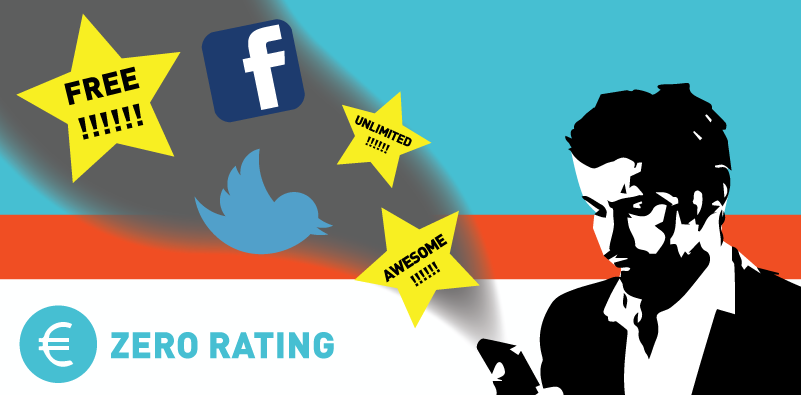Will the evaluation of the net neutrality rules be balanced?
In our open letter we expressed our concerns about the study of the implementation of the net neutrality rules. Our letter focused on the possible conflicts of interest of the lawyers in charge of the study, as well as the risk of an unbalanced report.
In August 2018, EDRi, together with nine other NGOs, at the initiative of our Dutch Member Bits of Freedom, asked the European Commission if it is possible to do independent research on the implementation of EU rules on net neutrality without being independent. The letter followed the award of a research contract to a law firm involved in net neutrality litigation. The Commission claims there is nothing to worry about. On 18 September 2018, a letter to follow up on the request was sent to the Commission.
(In)dependent researchers
The European Commission intends to issue an implementation report on the EU rules on net neutrality by April 2019. As previously reported in the EDRi-gram, the study on which the evaluation will rely on has been awarded to the law firm Bird & Bird, in consortium with the research and consultancy company Ecorys. In EU Member States like the Netherlands, Bird & Bird represents most major telecom operators on matters related to the telecommunications regulatory framework, including net neutrality. For example, Bird & Bird represents T-Mobile in the pending court case that EDRi member Bits of Freedom has initiated against the decision of the Dutch Regulatory Authority ACM not to take action against T-Mobile’s zero-rating offer.
In our open letter to the European Commission, we expressed our concerns about the study of the implementation of the net neutrality rules. Our letter focused on the possible conflicts of interest of the lawyers in charge of the study, as well as the risk of an unbalanced report.
European Commission: “Nothing to worry about”
The European Commission’s reply was surprisingly speedy and extensive. In its reaction, the Commission tried to convince us that all is well; there are all sorts of rules that the researchers are bound by and which should guarantee their independence and impartiality. For instance, the documents that are central to the study should be stored safely, the lawyers should be transparent about the court cases they’re involved in, and regulators should be able to check that “all the facts, cases and case law have been represented fully and correctly”.
Better to exclude risks in advance
We appreciate the letter by the Commission, but we think that they can do better. We have therefore sent a new letter to the European Commission in which we offer two solutions to prevent potential conflicts of interest in the future. First of all, we urge not to commission a study covering specific rules to a law firm like Bird & Bird, which is involved in a court case about those same rules, at the time of the study. The Commission seems to believe that this solution would limit them to only using researchers with solely theoretical knowledge. We think this an exaggeration as Europe can take pride of having a choice between a wide range of experts, including experts on net neutrality.
If this solution cannot be implemented, we suggested that the Commission should at least make sure that the lawyers who are involved in a particular study work be located in a different office than their colleagues working on an ongoing case that touches on the same subject. Regarding the study into the net neutrality rules, it just so happens that several of the lawyers involved in the study for the Commission, work from Bird & Bird’s offices in The Hague. This happens to be the same office where the lawyer who represents T-Mobile in the case on zero-rating.
Curious about the report
Even though our suggestions deal mainly with how to sensibly conduct research into the effects of European law, we are most of all curious about the study that will evaluate EU net neutrality rules. It is not completely clear when the Commission will publish the study, but we will examine it closely. There is one thing that should be obvious from the evaluation: the current rules do not protect citizens and businesses from harmful practices like zero rating.

This article is an adaptation of the article published by EDRi-member Bits of Freedom and translated from Dutch by Bits of Freedom volunteer Tim Rijk.
Can you do independent research without being independent? (29.08.2018)
https://edri.org/independent-research-colored-glasses/
Bits of Freedom: Open Letter to the European Commission on net neutrality study (29.08.2018)
https://www.bitsoffreedom.nl/wp-content/uploads/2018/08/20180818-signon-letter-to-commission-on-netneutrality-study.pdf
Is the evaluation of the net neutrality rules balanced? The European Commission thinks so (20.09.2018)
https://www.bitsoffreedom.nl/2018/09/20/is-the-evaluation-of-the-net-neutrality-rules-balanced-the-european-commission-thinks-so/
Open Letter replying to the response of the European Commission on net neutrality study (18.09.2018)
https://www.bitsoffreedom.nl/wp-content/uploads/2018/09/20180918-reply-to-reply-commission-on-netneutrality-study.pdf
Bits of Freedom’s court case about zero rating (06.08.2018)
https://www.bof.nl/2018/08/06/bits-of-freedoms-court-case-about-zero-rating/
(Contribution by Rejo Zenger, EDRi member Bits of Freedom, the Netherlands)


